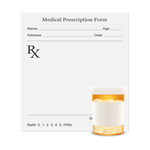Prescription opioids are not going anywhere, anytime time soon, but there are steps that can be taken by doctors to mitigate the opioid epidemic we face. The use of prescription drug monitoring programs (PDMPs), in recent years, has given doctors and pharmacies the ability to determine which patients are “doctor shopping” – that is, when a patient visits multiple doctors every month for the same types of drugs. What’s more, the PDMPs also show which doctors are overprescribing opioids.
The efforts to curb prescription opioid abuse cannot stop at monitoring programs. Doctors need to be educated on how to spot signs of addiction. Screening patients for addiction will help doctors identify and refer patients to the proper services that can help them break the cycle of addiction. What’s more, the Centers for Disease Control and Prevention (CDC) has issued new prescribing guidelines for primary care physicians treating chronic pain, according to U.S. News & World Report. The guidelines recommend that doctors use opioid narcotics for people with:
- Cancer
- End-of-Life or Palliative Care
- Serious Illnesses
The CDC suggests that primary care physicians perform urine screens on all patients before prescribing opioids, the article reports. The urine testing would not just apply to new patients, but preexisting patients as well. If a preexisting patient tests negative for opioids, it could mean that they are selling their medication, according to the article. If a new patient tests positive, it could be a sign of doctor shopping.
“It’s a way to find out what level of opioids the patient might already be on,” said Becky Vaughn, vice president of addictions at the National Council for Behavioral Health, who is familiar with the guidelines. “If someone already has a level of the drug when they come in to the doctor, then that obviously needs to be taken into account before a patient is given the medication.”
While the agency guidelines, if implemented, are likely to be effective, physicians are not required to heed the recommendations. Hopefully, primary care physicians will get on board, considering that they are on the front line of this insidious epidemic.


